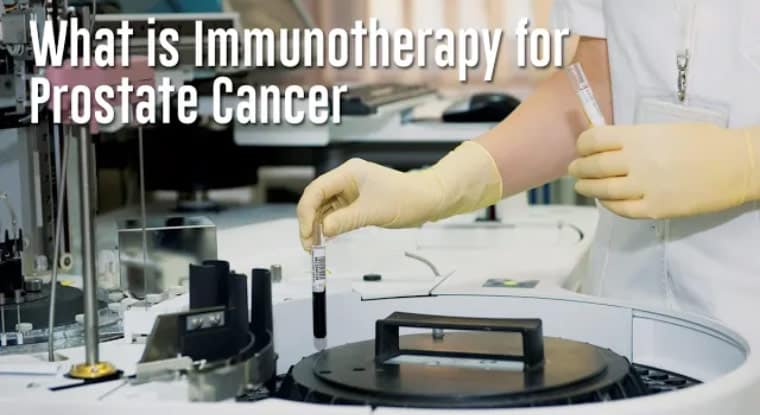Immunotherapy is a beneficial treatment for men with prostate cancer, particularly those with incurable advanced-stage or recurrent form of the disease. The treatment works by activating your immune system to attack the cancer cells, shrinking the tumor or causing it to disappear altogether. Used alone or in combination with other treatments, like chemotherapy, hormone therapy or radiation therapy, immunotherapy is able to reverse the growth of prostate cancer after the other treatment options have failed.
How does it work?
Like many other tumors, prostate cancer evades the immune system by deactivation of T-cells, the blood cells that attack foreign materials and abnormal cells in the body. So immunotherapeutic approaches are designed in a way to enhance the response of the immune system to cancer cells by reactivation of the T-cells.
During immunotherapy, immature immune cells are obtained from a man with prostate cancer. This is done to allow the cells to get out of the environment where they can be detected and deactivated by the cancer cells as soon as they are mature. The immature cells then are re-engineered by combining them with an artificial version of PAP, the antigen expressed by 95 percent of prostate cancer cells. After re-engineering, they are supplied with a factor (GM-CSF) that boosts their survival, growth and maturity once they are infused back into the body.
Meticulously re-engineered, activated, trained and matured T-cells are infused back into the body — now with the ability to attack and destroy cancer cells. They act as antibodies against the cancer cells and are able to detect and eliminate the cancer cells. The infusion of re-engineered cells or antibodies against prostate cancer is done three times. But as the treatment goes on, you still will be on the treatment or drugs you were already taking prior to immunotherapy. That will allow your body to produce enough activated, trained and matured T-cells to fight the prostate cancer without ever again being deactivated or bypassed by the cancer.
Why should you consider immunotherapy for prostate cancer?
Immunotherapy is an amazing and highly effective treatment for the cancer. During treatment, your cancer treatment team can use a wide variety of immune-based strategies to develop antibodies against the tumor, killing the cancer cells and preventing its recurrence. It offers excellent results in men with advanced-stage hormone resistant prostate cancer and reduces the risk of cancer recurrence in men with high-risk, localized tumors when it is administered in combination with hormone therapy. The treatment increases the survival rate from prostate cancer and enhances life expectancy by several years.
At Advanced Urology Institute, we are offering immunotherapy as a treatment option for prostate cancer, particularly tumors that have spread beyond the prostate or become resistant. And as our understanding of how cancer cells relate with the immune system deepens, we are tapping into that knowledge to help improve treatment outcomes for our patients. So if you have been diagnosed with prostate cancer, find out from your urologist if immunotherapy may be of help in your situation. Want to know more about the treatment options for prostate cancer? Visit the “Advanced Urology Institute” site.



